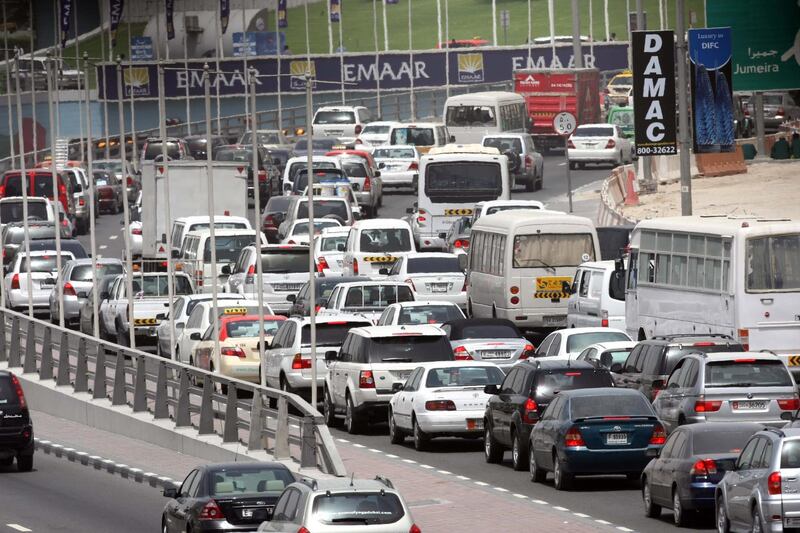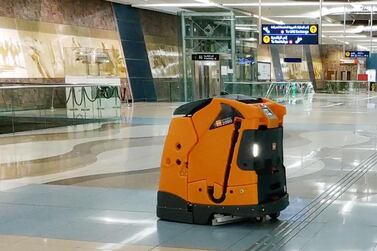The Roads and Transport Authority, RTA, has integrated a robot-operated vehicle registration plate maker in Dubai.
The fully-automated machine can produce 33,000 plates per day.
It applies the fourth industrial revolution, 4IR, technologies and artificial intelligence applications to print registration plates without any human intervention, state news agency WAM reported. Soon, RTA will install 10 similar machines at service provider centres and will be controlled via the RTA’s central factory.
German company Tonnjes designed and produced the world's first fully-automated licence plate production, in which a robot receives electronic printing orders via the e-Licencing System, and begins to print registration plates without any human intervention.
The system then tracks the lifecycle of the registration plate from manufacturing to scrapping via a QR code attached to the plate.
Each manufacturing unit can produce 350 to 700 plates per hour (one plate per 15 seconds). The machines can automatically print six different types of plates at a time, with a zero-margin error rate. This is a marked difference from the older systems, which could only produce 3,000 plates per day or would take about two minutes to print out one registration plate.
Last month, the Philippines Department of Transportation (DOTr) and the Land Transportation Office acquired new robotic plate-production machines for its licence plate-making facility in Quezon City, Manila, which the DOTr named the IDeROBOT.
The LTO is taking steps to increase its productivity to meet demand and tackle a backlog of plates drivers have been having to wait weeks for. With an estimate of 1.9 million new vehicles to be registered this year, the machine will work around the clock to deliver the numbers required. Some 1.7 million plates had already been produced by March 27, which left a backglog of around 6.3 million plates.
In February Tonnjes said it would invest over €1 million (Dh4.1m) in the construction of a new production plant for vehicle licence plates in Senegals' capital, Dakar. The specialist manufacturer of security licence plates and radio-frequency identification-based vehicle identification systems formed a long-term collaboration with Gemalto, a French software company and systems integrator.
The company will be operating in Senegal for the next 10 years under the name Afriplaque, producing and supplying blank plates in the local area.
Gemalto, working with local partner Face Technologies, signed a multi-year concession agreement with the Senegalese Ministry of Infrastructure, Land Transport and Disruption that includes migration to advanced eDriver and eVehicle licences, along with new road transport licences, secure registration plates and mobile verification terminals for the police.
"Dramatic improvements in the security and efficiency of enrollment and issuance are to be achieved, cutting fraud and optimising government revenues," it said at the time.







